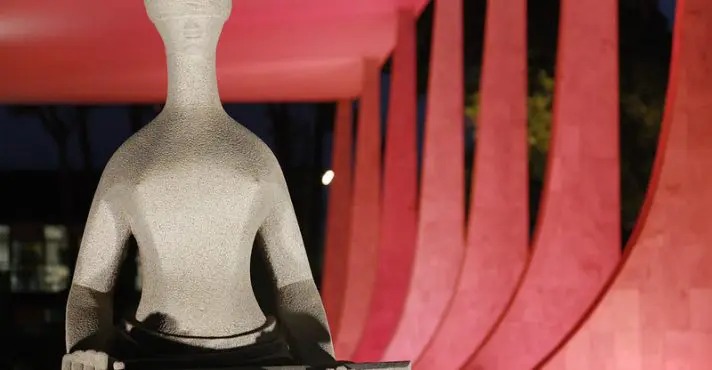Justice and Freedom of Speech Under Siege: The Erosion of Democratic Rights
By Laiz Rodrigues
In recent years, the fabric of democratic principles in Brazil has been tested, particularly with respect to the sanctity of justice and the fundamental right to freedom of speech. The division of opinions, a cornerstone of any healthy democracy, is increasingly under threat, raising alarming questions about the state of our constitutional protections and the rule of law.
The Brazilian Constitution explicitly safeguards the right to freedom of speech and the expression of diverse opinions. This right is not merely a privilege but a democratic imperative, ensuring that citizens can engage in robust debate, challenge authority, and hold their leaders accountable without fear of reprisal. Yet, recent actions by certain judicial figures have cast a long shadow over these protections, suggesting a disturbing trend where disagreement is met not with dialogue but with persecution.
Consider the case of former President Jair Bolsonaro and his allies, who have faced unprecedented judicial measures. Social media bans, electronic monitoring, and other restrictive actions have been imposed, ostensibly under the guise of maintaining order and upholding the law. However, these measures raise serious concerns about the overreach of judicial power and the potential chilling effect on free expression. When individuals are silenced or penalized for their political views, it undermines the very essence of democracy, where the free exchange of ideas is supposed to thrive.
Justice, too, appears to be on trial. The recent allegations against Supreme Court Justice Alexandre de Moraes, accusing him of surreptitiously altering a judicial decision without proper documentation, exemplify a troubling lack of transparency and accountability. Such actions, if true, violate the principles of due process and the rule of law, which demand that judicial proceedings be open, fair, and subject to public scrutiny. When justice is administered in the shadows, it erodes public trust and invites skepticism about the impartiality of the judiciary.
The division of opinions is not a threat to democracy but its lifeblood. Disagreement fosters critical thinking, innovation, and the evolution of societal norms. It is through the clash of ideas that we refine our understanding and chart a course toward a more just society. Yet, when difference of opinion leads to persecution, as seen in the targeting of political figures and their supporters, it sends a chilling message: conform or face consequences. This is antithetical to the democratic ideal, where diversity of thought is celebrated, not criminalized.
The Constitution of Brazil, like those of many democracies, protects the right to dissent. Article 5, for instance, guarantees freedom of expression and the right to peaceful assembly. These are not mere words on a page but the foundation upon which our democracy stands. When these rights are trampled, it is not just individual freedoms that suffer but the collective health of our nation.
We must ask ourselves: what kind of society do we want to build? One where fear of retribution stifles discourse, or one where the marketplace of ideas flourishes, even amidst disagreement? The answer should be clear. Justice must be blind, not to the law, but to the political affiliations or opinions of those it serves. Freedom of speech must be inviolable, a beacon that guides us through the storms of political division.
The current trajectory, however, suggests a drift toward a more authoritarian stance, where the judiciary’s role as an impartial arbiter is compromised. This is not just a failure of justice but a failure of democracy itself. It is incumbent upon all branches of government, civil society, and the citizenry to demand accountability and transparency. The persecution of differing opinions must cease, and the rule of law must be restored to its rightful place.
In conclusion, the erosion of justice and freedom of speech in Brazil is a call to action. We must defend the democratic right to division of opinions, recognizing that disagreement is not a weakness but a strength. Only by upholding these principles can we ensure that our nation remains a bastion of liberty and justice for all. The time to act is now, before the shadows of persecution darken the light of democracy.


